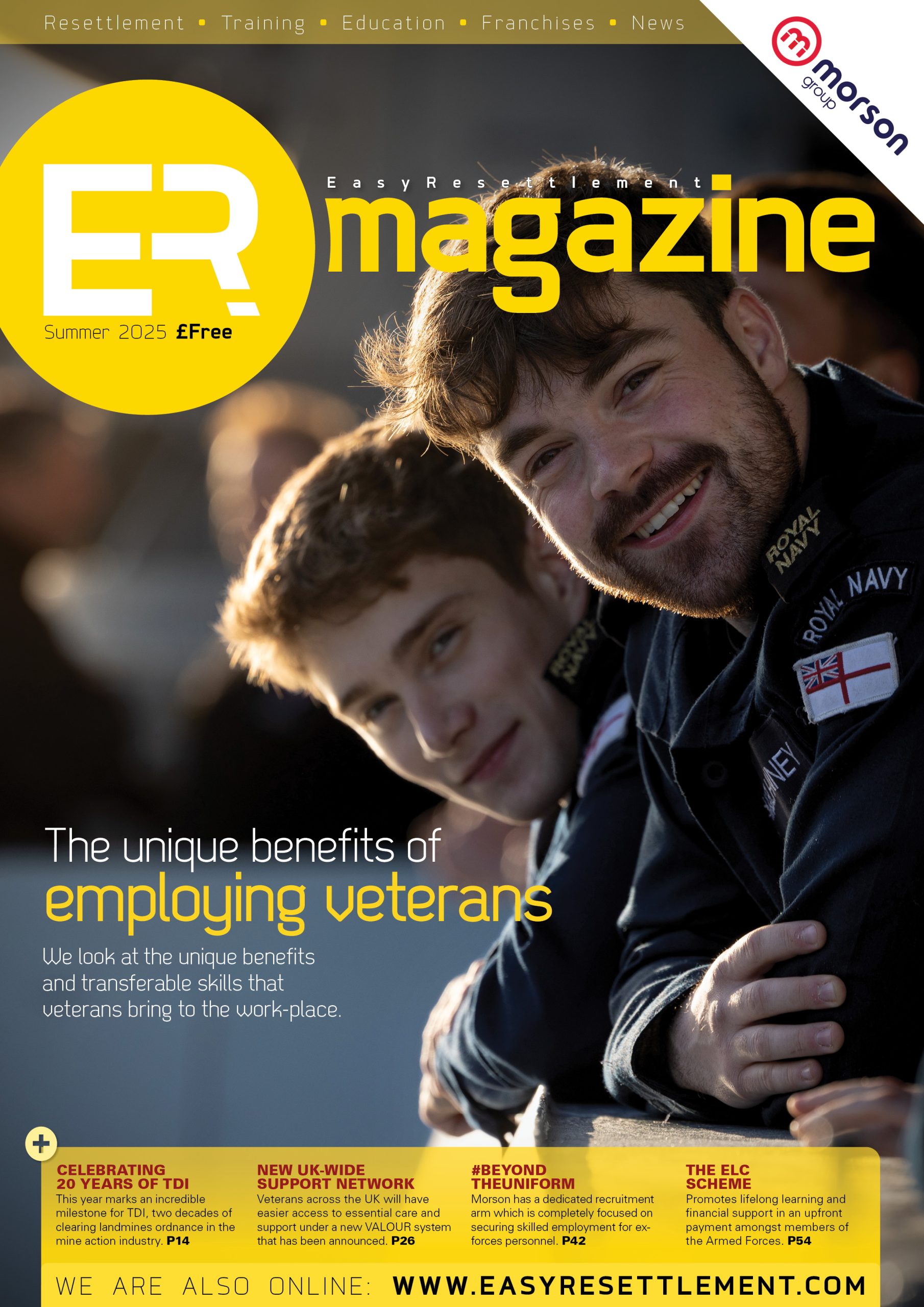Financial hardship and food poverty in the Armed Forces community
As a result of the Covid-19 pandemic and rise in household living costs, including heating and rent, an alarming and increasing number within the Armed Forces community are experiencing financial hardship and food poverty.
There is never a good time to struggle financially, and especially so during the festive season – this year will be the second Christmas experienced during the Covid-19 pandemic, which has seen lockdowns for all and uncertainty for many.
SSAFA, the Armed Forces charity is continuing to provide critical support to members of the Armed Forces and their families as financial hardship and food poverty becomes an increasingly alarming issues amongst the community.
Signs so far show that the demand for support has decreased since the crisis of 2020, but with the latest Government data showing food inflation 1.4% higher than pre-pandemic, the worst could be yet to come.
However, the problem is often compounded by pride.
Sir Andrew Gregory, CEO at SSAFA, the Armed Forces charity said:
“A proportion of the Armed Forces community – especially veterans who have served this country and their families, will struggle this Christmas and further into the new year with their finances and other issues. Amongst their challenges will be isolation, mental wellbeing and food poverty.
”Veterans are proud and reluctant to reach out for help; I would urge them not to suffer in silence as SSAFA is there for them and their families, whenever and wherever they need us. Just as they served this Nation, SSAFA is here to serve them.”
Aware of the growing financial hardship and food poverty amongst the veteran community, SSAFA is working with researchers at Northumbria University to identify the reasons for this hardship, as part of the first study of its kind into food poverty amongst the veteran community.
SSAFA’s research with Northumbria University – titled the Map of Need conducted in 2019 –has identified Scotland’s central belt as one of the three main areas of veteran deprivation. Glasgow Helping Heroes, a partnership between SSAFA and Glasgow City Council, supports veterans in the local area, which has been identified as a region where many veterans are struggling with food poverty and are in debt.
Glasgow Helping Heroes saw food poverty more than double in 2020, with 56 separate clients receiving 156 emergency food supplies, including foodbank and supermarket vouchers. By comparison, before the pandemic, just 26 clients required this form of support in 2019.
SSAFA beneficiary, Rona Price, the widow of a former Gordon Highlander who died in 2016, was helped financially and emotionally by SSAFA after the death of her husband.
Prior to the Covid-19 pandemic, with their four children all now adult and thanks to the help she received from SSAFA, Rona was generally doing well.
She was able to make enough by working as an office cleaner, but in March 2020 as the Coronavirus pandemic and lockdown hit the UK, the company she worked for shut down. She lost her income, was not eligible for support on the furlough scheme, and was unable to find work elsewhere.
Rona said:
“I couldn’t even afford a meal. I built up the courage to phone the food bank, but they told me they were only supporting Covid patients. My freezer broke at the same time, and I asked the council to see if they could help me get a new one because there was no way I could save for one, but they said it wasn’t an emergency.
Rona was reluctant to reach out for SSAFA’s support as she had already been helped by the charity in 2016 following her husband’s death.
“I felt deflated, and I was beginning to fall behind with my rent trying to stay afloat. That’s when I approached SSAFA for help again.”
“I was put in touch with Garry at SSAFA’s Glasgow Helping Heroes. I explained everything that was happening, and he asked me questions about things I hadn’t even thought about, like not having had new clothes or shoes in three years.
“He said he would help me, and he immediately put money on a voucher card for me to buy food. He phoned and messaged to keep me updated on the other support I needed too.
“The freezer arrived, and the rent was paid. My freezer was now full because of the food vouchers they gave me. They managed to get me £180 in vouchers for clothes, which is so exciting. I’m now back on track.
“Garry was absolutely lovely. He never made me feel small for being at a point of hardship. I couldn’t fault him. Another man from Glasgow Helping Heroes called Sy also helped. He went the extra mile and brought me round two huge bags of cat food for my pets and he brought me a present of chocolate and some candleholders which he put tealights in. I just couldn’t believe the generosity.
“They were there for me, with no judgement. You could tell by their mannerisms they were here to help me. I would recommend them to anybody.”
Elsewhere in the UK, SSAFA continued to support beneficiaries who were also suffering because of the Covid-19 pandemic, including Army veteran Derek Taylor.
As Britain went into the first lockdown in March 2020, the Warwickshire-based father’s first concern was how he was going to feed his four children.
Self-employed for less than a year, when the pandemic hit, the former Corporal in the Fusiliers was not able to access any of the Covid-19 support from the Government, including the furlough scheme.
He said:
“I just didn’t know how I was going to pay for anything. I was walking around my house aimlessly, and then just sitting in my living room on the edge of my seat staring at the walls because I was lost. I’m a single dad who went from working 18-hour days to provide for my children, to being locked inside with nothing coming in. The whole thing has been so severe.”
Derek applied for Universal Credit but was told he was not eligible to receive these funds because of his Armed Forces pension. This was despite having four children to look after, with the two youngest, aged two and five, living with him permanently during the pandemic as their mother was working in a care home.
Derek added:
“I have never had to claim for anything in my life, and as a soldier, I’m a proud man. I never wanted to have to ask for help, especially to keep the roof over the heads of my children. I couldn’t work as normal because it would be irresponsible and put people at risk.”
He began receiving support through an NHS Veteran’s Mental Health Service when he mentioned the financial problems he was facing. His psychiatrist put him in touch with SSAFA.
Derek said:
“I broke down, and though it was hard to admit I needed help, by that point I was willing to do anything. People kept saying it’s good to talk, but all I could think was talking wasn’t going to put a roof over our heads.”
Derek was contacted by a volunteer from his local branch in North Warwickshire who put a case together to help with his rent, as well as food and supplies.
“It took 10 days from me being utterly lost to knowing I could get by again. My rent was paid, and my caseworker also gave me £450 for food and supplies. I was then able to use my pension to pay my bills and even managed to buy pyjamas for my children – that was amazing.
“If I didn’t speak to SSAFA when I did, there is a chance I wouldn’t be here now.
“I know many veterans and soldiers who have committed suicide because of trivial things like debt and not knowing who to turn to. When I was first going through the process, I didn’t have a clue where to go, but now I would tell anyone to go to SSAFA.”
Derek ended, saying:
“Don’t be too proud or think they won’t understand. They are brilliant and know how to put you back on your feet and give you direction.”

